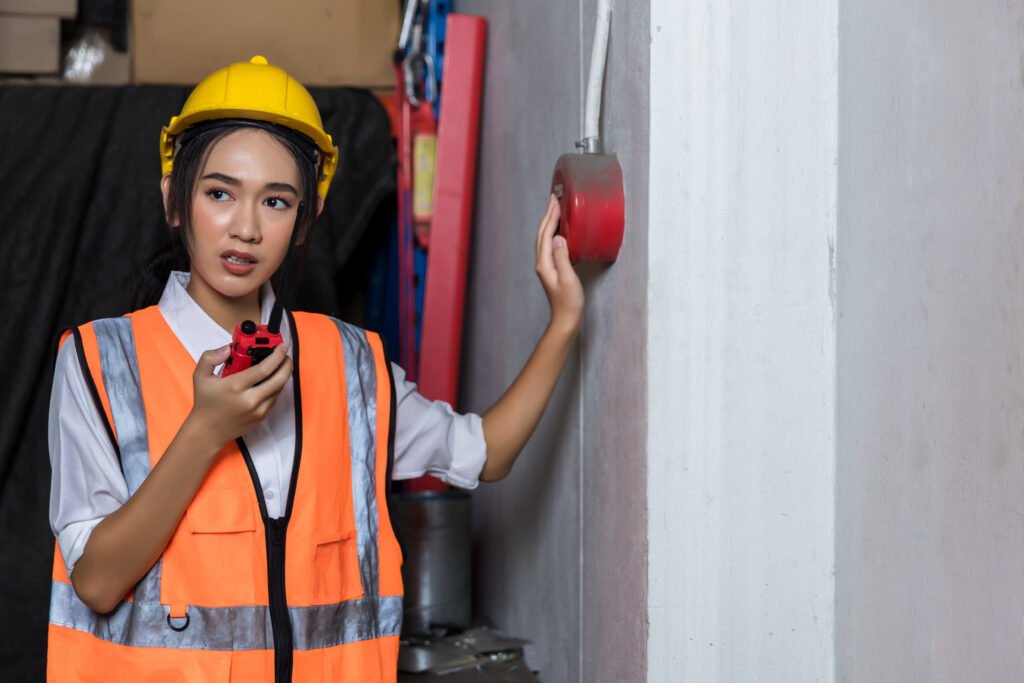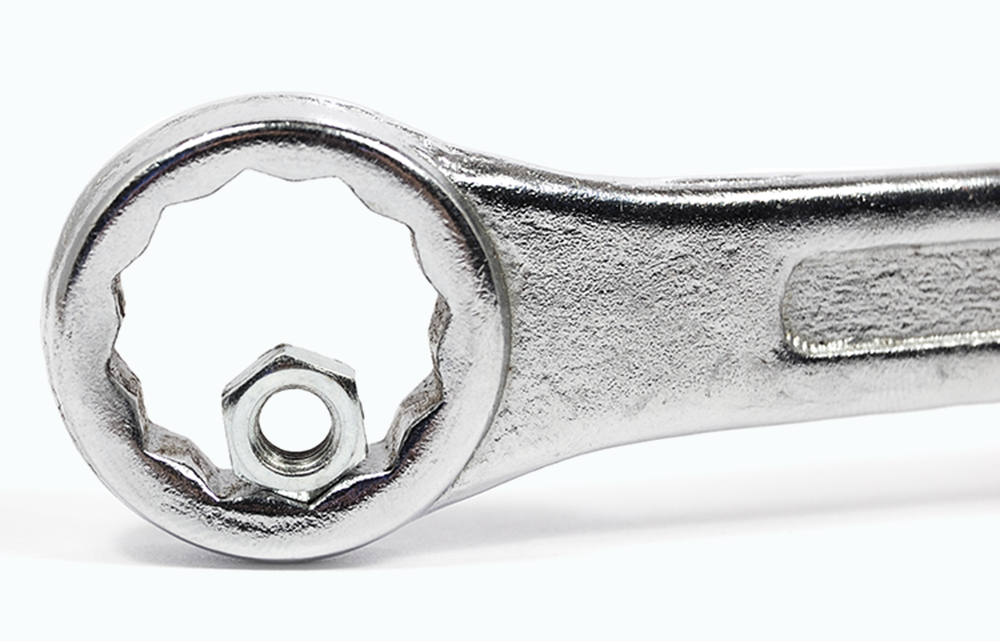Commercial Fire Alarm Installation

Introduction to Commercial Fire Alarm Installation
The field of commercial fire alarm installation is not only about protecting buildings and lives – it’s also a thriving area of employment in the fire and security industry. Engineers who specialise in installing and maintaining commercial fire alarm systems are in high demand across the UK. For those looking at long-term careers, fire alarm jobs offer a mix of technical work, compliance knowledge, and excellent progression into design, project management, or specialist systems roles.
In this article, we’ll explore what commercial fire alarm installation involves, including how to choose the appropriate fire alarm system the qualifications engineers need, the hotspot locations for work, and how you can progress your career in this growing sector.
Fire Alarm Systems in Commercial Settings
Modern fire alarm systems, which include fire detection mechanisms, are complex, highly regulated, and essential for safety in every commercial property. From warehouses and shopping centres to hospitals and office blocks, systems need to be carefully designed, installed, and maintained to meet both legal requirements and insurance expectations.
For engineers, this means there is always steady employment in the planning, installation, and servicing of systems that keep commercial premises safe and compliant.
Fire Alarms and Their Importance
When people think of fire alarms, they usually imagine a basic smoke alarm in a domestic home, but there are also advanced fire detectors in commercial environments . In commercial environments, the scale is far greater. Systems often cover multiple floors, involve thousands of detection points, and integrate with evacuation and suppression systems.
For engineers, this creates a technical challenge – ensuring alarms are installed correctly, function reliably, and are able to provide early detection in the event of fire.
Conventional Fire Alarm Systems
One of the most common technologies engineers work with is conventional fire alarm systems. These are usually installed in smaller commercial buildings, where zones are created, and detection devices are wired to a control panel.
From an employment perspective, engineers with experience on conventional systems are valued, especially for small-to-medium projects. Knowledge of wiring, fault finding, and compliance checks are all skills that can secure permanent positions or subcontract opportunities.
Addressable Systems
As buildings get larger, addressable systems become more common. These allow each detector or device to have its own unique address, so faults and activations can be pinpointed instantly.
For engineers, knowledge of installing and programming addressable fire alarm systems is a strong career advantage. Employers often prioritise candidates with this experience, as these projects are larger, more complex, and often better paid.
Heat Detectors and Smoke Detectors
Within any installation, engineers will work with a range of devices including fire detectors, heat detectors, and smoke detection systems. Understanding when to specify and install each type of device is critical. For example, kitchens and industrial environments may require heat sensors to avoid false alarms, while office areas benefit from sensitive smoke detection.
Engineers with a strong understanding of detection technology are well placed to move into design roles, where device selection is key.
Install Fire Alarms: The Engineer’s Role
The day-to-day work of engineers is to install compliant fire alarm systems correctly, ensuring all cabling, devices, and control panels meet legal requirements and are fitted in accordance with manufacturer specifications and British Standards. The installation process requires careful attention to detail and is one of the most consistent sources of employment in the fire and security industry.
For those entering the sector, learning how to install alarms to the highest standards opens doors to both permanent and contract work.
Alarm Installation in Commercial Property
Every alarm installation in a commercial property needs to comply with regulations and be tailored to the building’s use. Hospitals, schools, warehouses, and retail spaces all have different requirements.
This diversity ensures that engineers have variety in their work and can build a portfolio of experience across multiple sectors. For candidates, this makes their CV more attractive and can lead to higher salaries.
Early Detection and Life Safety
The primary purpose of fire alarms is early detection – spotting a fire before it spreads and ensuring safe evacuation. Engineers play a critical role in achieving this. By installing compliant detection systems, they help save lives, reduce damage, and protect jobs.
From a recruitment standpoint, engineers who can demonstrate their systems provide early warning are often in demand, particularly by clients managing high-risk environments.
Monitoring Services and Fire Alarm Monitoring
Many commercial clients now require monitoring services as part of their fire alarm package. This involves fire alarm monitoring where signals are sent to a remote station or the emergency services.
For engineers, this means understanding how to integrate remote signalling equipment with various fire alarm systems and a fire alarm control panel. Knowledge in this area can give candidates an edge in the job market.
Detection Systems Beyond Fire Alarms
Modern detection systems, which are part of broader protection systems, are not limited to smoke and heat. Engineers may also work with voice evacuation systems, emergency lighting, and even integrated security systems.
Being able to install and maintain a wider range of protection systems is a good way for engineers to increase their employability and stand out when applying for roles.
Career Hotspots for Commercial Fire Alarm Installation
Employment opportunities in commercial fire alarm services are not evenly spread across the UK. Some locations offer particularly strong demand:
- London and the South East – consistent need due to the density of commercial buildings.
- Manchester and the North West – booming commercial development, often seeking subcontract engineers.
- Birmingham and the Midlands – central hub for large commercial projects.
- Scotland (Glasgow, Edinburgh, Aberdeen) – demand for engineers with knowledge of local compliance standards.
Candidates willing to travel or relocate often find better pay and more regular projects in these areas.
Progression from Installation to Design
Many engineers use commercial fire alarm installation as a stepping stone to more senior roles. After gaining site experience, engineers may progress into:
- Fire Alarm Designer – planning systems, specifying equipment, and producing CAD drawings.
- Project Manager – overseeing teams, budgets, and delivery on major installations.
- Compliance Manager – ensuring installations meet British Standards and client requirements.
Recruitment agencies specialising in the fire and security sector often support candidates making these transitions.
Fire Safety and Regulations
Every commercial fire alarm system must comply with fire safety regulations, including the appropriate placement of fire extinguishers . Engineers must be aware of legal requirements, fire safety measures, and how to ensure each system complies with standards.
Employers value candidates who can demonstrate strong knowledge in compliance. Training in fire risk assessment or auditing can also open up career options beyond installation.
Commercial Fire Alarm Maintenance
Once commercial fire alarms are installed, they require ongoing maintenance. Engineers skilled in servicing and testing are highly employable. Commercial fire alarm maintenance contracts are steady, long-term sources of work, making this a strong option for subcontractors as well.
Technology Trends in Commercial Fire Alarms
The industry continues to evolve, and engineers who keep up with new technology can gain a career advantage. Current trends include:
- Wireless fire alarm systems – faster installation and less disruption to commercial premises.
- Analogue fire alarms – still widely used, so knowledge is valuable.
- Integration with other security systems – crossover skills make engineers more versatile.
- Recruiters often highlight candidates who show adaptability and up-to-date technical expertise.
The Role of Engineers in Property Protection
Ultimately, engineers in commercial fire alarm services are not just fitting devices – they are providing property protection and life safety. By ensuring systems are functioning properly, they give business owners peace of mind, reduce downtime after fire incidents, and contribute to safer communities.
Training and Qualifications for Engineers
Key qualifications and training that improve employability include:
- FIA training modules in design, installation, and maintenance.
- City & Guilds in electrical installation.
- Health & Safety (CSCS/ECS) cards.
- Manufacturer training (e.g. Gent, Advanced, Kentec panels).
The more systems an engineer can work on – from conventional and addressable systems to complex detection systems – the more attractive they are to employers.
Recruitment Outlook in the Fire Alarm Industry
The UK market shows strong growth in fire and security recruitment. Demand for skilled engineers is rising due to new regulations, insurance requirements, and increasing investment in commercial property.
For candidates, this means plenty of opportunities – both permanent and subcontract. For employers, it means competition to secure the best engineers, often leading to higher salaries and better benefits packages.
Conclusion: How CSR Can Help
Commercial fire system installation is a career with strong prospects, technical challenges, and progression opportunities. Engineers who specialise in this area will always be in demand, particularly in commercial hotspots like London, Manchester, and Birmingham.
At CSR, we specialise in fire and security recruitment. Whether you are an engineer looking to install fire alarms, a designer moving into project management, or a subcontractor seeking steady work, we can help.
Call us today on 01708 737744.
We are here to help you achieve your goals in the fire and security industry.
Every Job is Easier if You Have the Right Tools
